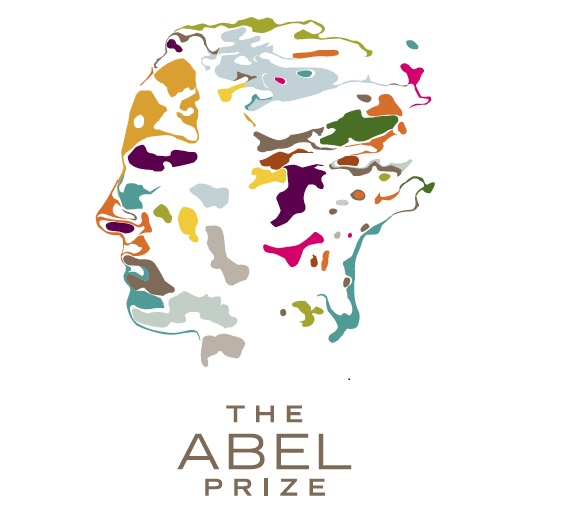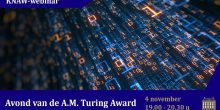Last evening we attended with some colleagues the "Evening of the Abel Prize 2021", a yearly event organized by the Royal Netherlands Academy of Arts and Sciences. This yearly event aims to give a global view of the work of the latest Abel prize laureates.
This year the work of the Israeli computer scientist Avi Wigderson and the Hungarian mathematician László Lovász was in the spotlight. On the website of the Academy we read: "They received the prize in 2021 for their foundational contributions to theoretical computer science and discrete mathematics, and their leading role in shaping them into central fields of modern mathematics."
We arrived just on time when everybody was entering the room, the event was about to start in a couple of minutes and I just had enough time to grab a glass of water. Upon entering the room I saw many familiar faces, students, and also colleagues from other universities. It was wonderful to see everyone again. Frank den Hollander, organizer, and moderator of the event, was getting ready for the start of the programme.
The event lasted almost two hours, what was unique this year is that both Avi Wigderson and Lászlo Lóvász were present to speak about their work. The atmosphere was relaxed, jokes were made, some personal stories were shared, and the speakers tried their best to interact with the audience.
For me, the most amazing and interesting aspect of the event was that we could get, in just two hours, a global view of two very modern, and still growing mathematical fields. It is just amazing to watch two mathematicians of their caliber zooming out and leaving out the technical details, and giving a global overview of their pioneering work.
Avi Wigderson talked about imitation games, cryptography, pseudo-randomness, and the role of randomness in modern mathematics and computer science. The concept of randomness is widely used in computer science in developing algorithms for example. A natural question that arises in this context is how can a computer possibly generate randomness. As the computer is a very deterministic object it cannot generate pure randomness, this is why we speak of pseudo-randomness. In his work, Avi Wigderson has investigated the power and limits of randomness.
Láslzo Lóvász on his side gave an overview of his work on graph-limits, a mathematical theory of how to mathematically model and study very large networks. Large networks appear everywhere nowadays, think of electricity networks, online social media networks like Twitter or Facebook, the Internet, and many more. Why are mathematical models of such networks important? Think for example that you need to run some experiments to understand the properties of such real-world networks. You will not run the experiments on the actual networks of course. But you would want to have a mathematical model that encapsulates some properties of the real-world network it describes, and perform the experiments on this model. In his talk, Láslzo Lóvász gave an overview of the beautiful mathematical theory of graph-limits. What has been done until now, what are researchers currently working on, and which are the future challenges.
To conclude, it was a wonderful event, which gave enough new ideas to think about, and showed clearly that mathematics is a prospering science with many unknown paths to explore. The event was recorded and the recording can be found here.
Many thanks to the organizers of the event who will probably start soon with the preparations for the next Evening of the Abel Prize next year, since the Abel Prize laureate 2022 was announced on March 23rd. The Abel Prize 2022 was awarded to Dennis Parnell Sullivan “for his groundbreaking contributions to topology in its broadest sense, and in particular, it's algebraic, geometric and dynamical aspects”.





